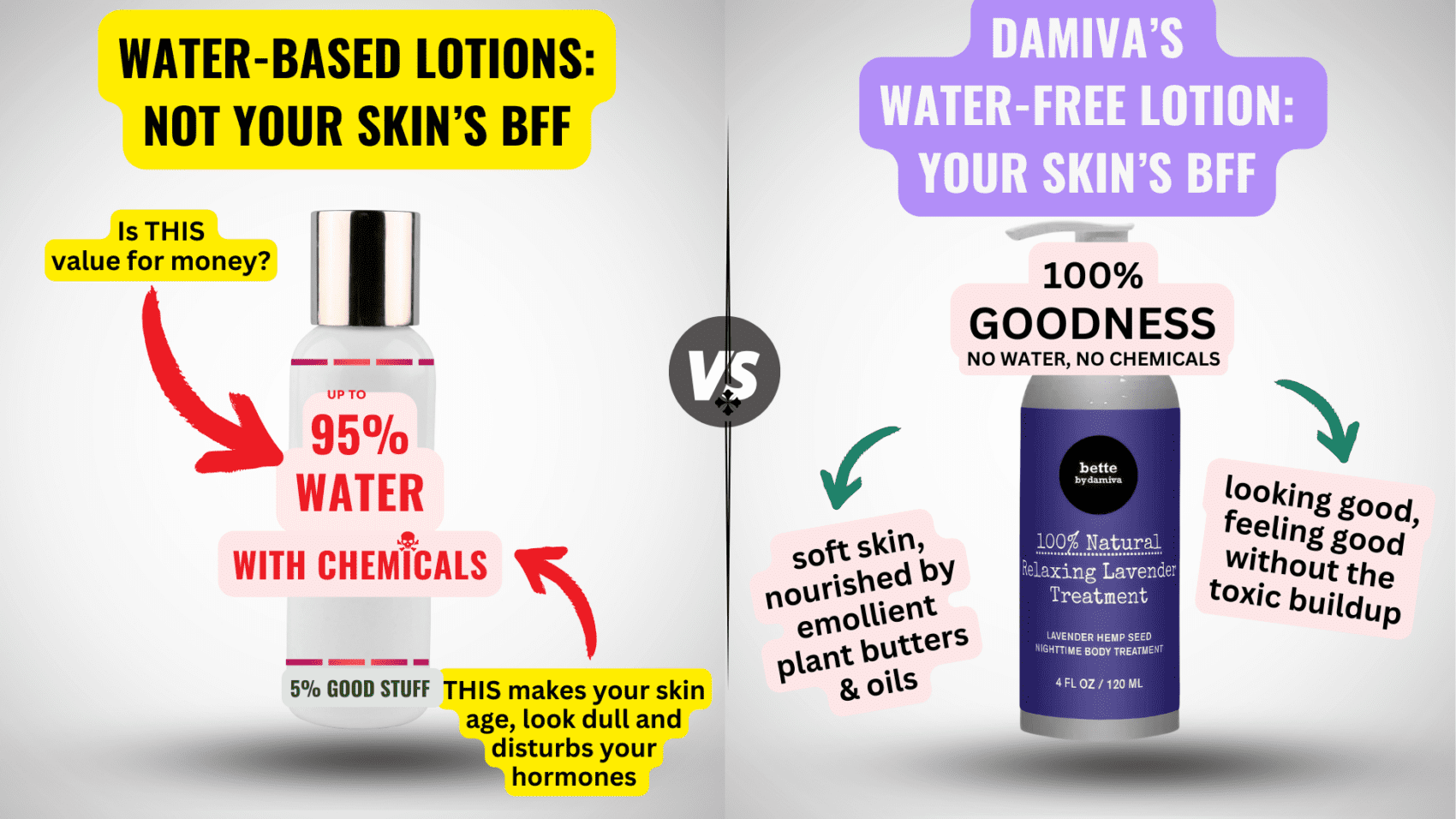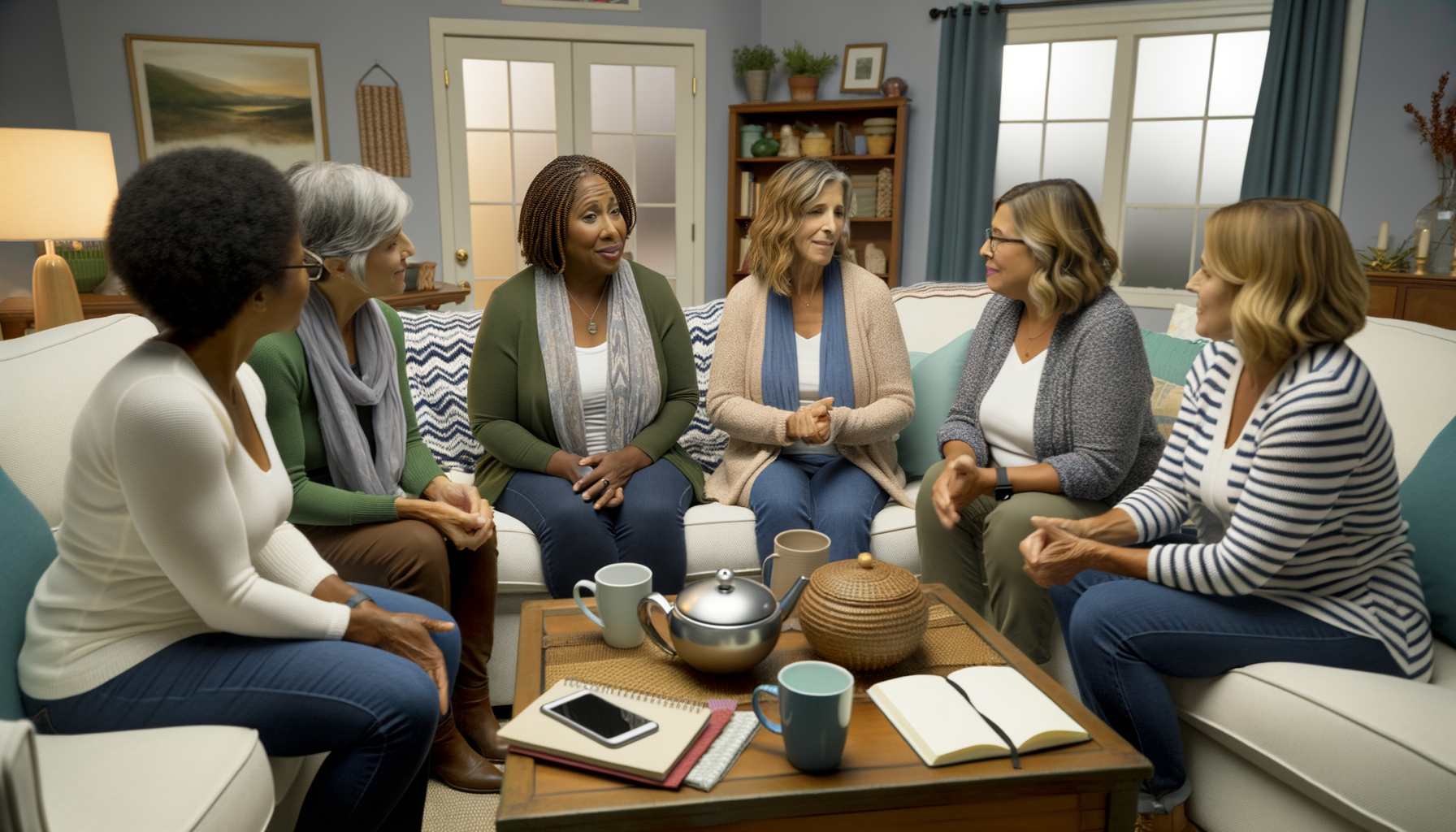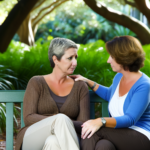Menopause is a natural biological process that marks the end of a woman’s reproductive years. It is officially diagnosed after a woman has gone 12 consecutive months without a menstrual period. The transition, often occurring between the ages of 42 and 58, brings a variety of symptoms due to hormonal changes, primarily the decrease in estrogen and progesterone. Common symptoms include hot flashes, night sweats, vaginal dryness, weight gain, thinning hair, and dry skin. These symptoms can affect a woman’s quality of life and well-being.
Duration and Variability of Menopausal Symptoms
The duration and intensity of menopausal symptoms vary greatly among women. While some may experience mild discomfort, others endure more severe symptoms that can last for a decade or longer. Hot flashes, one of the most prevalent symptoms, can persist for as long as 11 years. This variability underscores the importance of personalized support and understanding during this phase.
Psychological and Emotional Challenges
Menopause can also pose significant psychological and emotional challenges. Fluctuating hormones can lead to mood swings, irritability, anxiety, and depression. Social anxiety and a loss of confidence may arise, further complicating a woman’s ability to maintain her usual lifestyle. Sleep disturbances, such as insomnia and night sweats, exacerbate these emotional challenges, often leading to a cycle of stress and fatigue.
The Need for Support During Menopause
The complexities of menopause highlight the need for support. Women often find solace in sharing their experiences with others who understand and can relate to their journey. Female friendships, in particular, provide a unique form of empathy and encouragement. These bonds can be a source of comfort, offering a space to vent, seek advice, and receive emotional support. As women navigate the unpredictable waters of menopause, the companionship and understanding from friends become invaluable, helping to alleviate feelings of isolation and promoting a sense of community and well-being.
The Role of Female Friendships in Menopause
Nurturing Bonds Among Women
Menopause is a significant life transition that can be both physically and emotionally challenging. During this time, the nurturing bonds among women become increasingly important. Female friendships provide a unique source of support, understanding, and compassion that is often unmatched by other relationships. These bonds are built on shared experiences and a deep sense of empathy, allowing women to feel seen and heard in a way that can alleviate the sense of isolation that sometimes accompanies menopause.
Sharing Experiences and Validating Feelings
One of the most valuable aspects of female friendships during menopause is the ability to share personal experiences openly. Discussing symptoms such as hot flashes, mood swings, and other changes can be incredibly validating. When women talk about their menopausal journey with friends who are going through similar experiences, they often find comfort in knowing they are not alone. This sharing of stories and strategies for coping not only strengthens friendships but also provides practical support and advice.
Creating a Supportive Community
Female friendships can blossom into a broader community of support during menopause. Whether it’s through informal gatherings or organized support groups, creating a community where women can connect and share can be immensely beneficial. This sense of community fosters understanding, trust, and a feeling of belonging. It can also be a space for laughter and joy, providing a counterbalance to the challenges of menopause.
The Health Benefits of Female Friendships
The health benefits of strong female friendships during menopause are well-documented. Studies have shown that women with close friends experience lower levels of stress, anxiety, and depression. These friendships can lead to increased levels of hormones like oxytocin and progesterone, which promote mood regulation and stress relief. Moreover, the emotional support provided by friends can translate into better physical health outcomes, as women are more likely to engage in health-promoting behaviors when they feel supported by their peers.
In conclusion, female friendships play a crucial role in navigating the complexities of menopause. They provide emotional support, practical advice, and a sense of community that can make all the difference in a woman’s menopausal experience. As women bond over shared experiences and support each other through this life stage, they not only strengthen their friendships but also enhance their overall well-being.
Building and Maintaining Menopausal Support Networks
Menopause is a significant life transition for women, often accompanied by a range of physical, psychological, and emotional changes. During this time, the importance of a strong support network cannot be overstated. Female friendships, in particular, play a crucial role in providing the necessary support, understanding, and camaraderie to navigate this phase of life. This section delves into the intricacies of building and maintaining menopausal support networks, focusing on the following subtopics:
Identifying and Connecting with a ‘Tribe’
Finding a group of like-minded women who are going through similar experiences can be incredibly empowering. This ‘tribe’ can be a source of strength, offering a safe space to share and validate each other’s experiences. To connect with such a group, women can:
- Seek out local or online menopause support groups.
- Attend workshops, seminars, or health talks focused on midlife and menopause.
- Engage in social activities or hobbies where they might meet peers.
The Importance of Inclusivity in Support Groups
Inclusivity ensures that every woman’s voice is heard and valued, regardless of her background or the nature of her menopausal journey. Support groups should:
- Embrace diversity in age, culture, and menopausal experiences.
- Encourage open dialogue and discourage judgment or competition.
- Provide resources that cater to a wide range of needs and preferences.
Activities and Conversations that Strengthen Bonds
Activities that foster a sense of community and facilitate deeper connections can reinforce the bonds within a support network. These might include:
- Regular meet-ups for coffee or walks.
- Group exercise classes tailored to midlife women.
- Book clubs or discussion groups focusing on women’s health and wellness.
Conversations within these groups should be open, honest, and non-judgmental, allowing women to share their fears, challenges, and triumphs.
Navigating Friendship Dynamics During Menopause
Menopause can strain even the strongest of friendships. To navigate these dynamics:
- Communicate openly about the changes and challenges being faced.
- Be patient and understanding with one another, recognizing that mood swings and emotional upheaval are common.
- Set boundaries to ensure that the support provided is reciprocal and not draining for any one member of the group.
By focusing on these key areas, women can build and maintain a supportive network that will not only help them manage the symptoms of menopause but also enhance their overall well-being during this transformative period.
The Science Behind Female Friendships and Menopause
Hormonal Responses to Social Connections
During menopause, women often experience a rollercoaster of hormonal changes that can affect their mood, physical health, and overall well-being. Interestingly, social connections have been shown to influence hormonal responses in the body. Research suggests that positive social interactions can trigger the release of oxytocin, often referred to as the “bonding hormone.” This hormone promotes feelings of trust, relaxation, and psychological stability, which can be particularly beneficial during the menopausal transition. Engaging in meaningful conversations and activities with friends can help mitigate some of the stress and emotional turbulence associated with menopause.
Progesterone Production and Stress Relief
Progesterone, a hormone that declines during menopause, has a calming effect on the brain and is associated with stress relief. While the body’s natural production decreases, social support from female friendships can indirectly boost the sense of calm and resilience. A study by the University of Michigan in 2009 found that women who form close bonds with others have increased progesterone levels, leading to reduced anxiety and improved mood regulation. This underscores the importance of maintaining strong social networks during menopause.
Mood Regulation Through Social Interaction
Social interactions play a crucial role in regulating mood. Engaging with friends can provide a sense of validation and understanding that is essential for emotional health. Sharing experiences and discussing menopausal symptoms with peers who empathize can be incredibly reassuring. The collective empathy and understanding found in female friendships can help regulate mood swings and provide a stable emotional environment, which is particularly valuable when hormonal fluctuations may lead to increased irritability or feelings of sadness.
Long-term Health Outcomes of Strong Female Friendships
The benefits of strong female friendships extend beyond immediate emotional support; they also contribute to better long-term health outcomes. Studies have shown that women with robust social networks tend to have a lower risk of chronic diseases, better cognitive function, and increased longevity. The social and emotional support provided by friends can encourage healthier lifestyle choices, adherence to medical advice, and a more proactive approach to health during menopause. These friendships can act as a buffer against the negative health impacts of stress and isolation, leading to a more vibrant and healthy life post-menopause.
In conclusion, the science behind female friendships during menopause highlights the profound impact that social connections can have on hormonal balance, stress relief, mood regulation, and long-term health. As women navigate the complexities of menopause, fostering and maintaining these bonds is not just a source of comfort but a critical component of their overall health strategy.

Challenges in Cultivating Friendships During Menopause
Overcoming Isolation and Withdrawal
Menopause can be a time of significant change, not only physically but also emotionally and socially. One of the challenges women may face is the tendency to isolate themselves due to the myriad of symptoms and emotional upheavals. Feelings of isolation can be compounded by the withdrawal from social activities, either due to a lack of energy, mood swings, or embarrassment over symptoms such as hot flashes. To overcome this, it is essential for women to recognize the value of maintaining and nurturing friendships. Proactive steps such as reaching out to friends, joining support groups, or participating in activities can help counteract the inclination to retreat into solitude.
Dealing with Mood Swings in Social Settings
Mood swings can be one of the most challenging aspects of menopause, affecting not only the individual but also their interactions with friends. In social settings, these sudden changes in mood can lead to misunderstandings and strain friendships. It is crucial for women to communicate openly with their friends about what they are experiencing. Friends who are aware of the potential for mood swings can be more understanding and supportive. Additionally, developing strategies for managing mood swings, such as mindfulness or breathing exercises, can help maintain harmony in social interactions.
Encouraging Openness and Vulnerability
Discussing menopause and its symptoms is often considered taboo or too personal. However, fostering an environment where openness and vulnerability are encouraged can lead to stronger, more supportive friendships. Sharing experiences with menopause can not only provide emotional relief but also help friends understand and offer the right support. It is important for women to find safe spaces where they can be candid about their experiences without fear of judgment or stigma.
Supporting Friends Who Are Non-Menopausal
Friendships between menopausal and non-menopausal women can sometimes be strained due to a lack of shared experience. It is important for menopausal women to recognize that their non-menopausal friends may not fully understand what they are going through. Conversely, non-menopausal friends should strive to be empathetic and educate themselves on menopause. Mutual support and understanding can be fostered through open dialogue and education, ensuring that these friendships remain strong and resilient.
In conclusion, while menopause can present challenges to cultivating friendships, it also offers an opportunity to deepen bonds through shared experiences and mutual support. By overcoming isolation, managing mood swings, encouraging openness, and supporting friends of all stages, women can maintain and even strengthen their friendships during this transitional period.

THEN IT CONTAINS TOXIC CHEMICALS. WHY RISK IT GETTING SICK? GO CHEMICAL FREE.
Practical Tips for Leveraging Female Friendships
Effective Communication Strategies
Open and honest communication is the cornerstone of any strong friendship, especially during menopause. To foster a supportive environment, it’s crucial to express your needs and feelings clearly. Here are some strategies:
- Active Listening: Show genuine interest in your friends’ experiences, which can help validate their feelings and create a deeper bond.
- Non-Verbal Cues: Pay attention to body language and facial expressions, as they can convey empathy and understanding without words.
- Regular Check-ins: Schedule time to talk about your menopausal journey, ensuring that everyone feels heard and supported.
Using Technology to Stay Connected
In today’s digital age, technology can be a lifeline for maintaining friendships, particularly when physical meetings are not possible. Consider these options:
- Social Media Groups: Create private groups on platforms like Facebook to share information and encouragement.
- Video Calls: Use apps like Zoom or Skype for virtual get-togethers, simulating the intimacy of in-person meetings.
- Messaging Apps: Quick texts or messages through WhatsApp can provide instant support when needed.
Organizing Supportive Gatherings and Events
Gatherings, whether virtual or in-person, can significantly enhance the support network among friends. Here are some ideas:
- Menopause Cafés: Host casual meetups to discuss menopause openly in a relaxed setting.
- Exercise Groups: Form a walking club or yoga group to promote physical health and camaraderie.
- Educational Workshops: Arrange sessions with healthcare professionals to learn about menopause management.
Self-Care and Boundaries Within Friendships
While friendships are invaluable, it’s essential to practice self-care and establish boundaries to prevent burnout. Here’s how:
- Personal Time: Respect each other’s need for alone time to recharge and reflect.
- Clear Boundaries: Communicate limits on availability and the type of support you can offer.
- Self-Care Activities: Encourage participation in activities that promote individual well-being, such as meditation or hobbies.
Personal Stories and Community Voices
Anecdotes of Friendship and Menopause
Menopause is a journey that varies greatly from one woman to another, but the common thread of shared experiences can form the basis of strong female friendships. Anecdotes from women in various communities highlight the importance of these bonds. For instance, during workshops held in Maskwacis, women spoke candidly about their menopausal symptoms, ranging from hot flashes described as “burning inside and out” to the unpredictability of menstrual blood flow causing anxiety. These shared stories not only provided a space for validation but also for laughter and camaraderie, as one woman humorously noted, “that’s why it’s called MENopause!”
Diverse Experiences and Perspectives
The diversity of menopausal experiences is vast, with cultural, social, and individual factors shaping each woman’s journey. In East Coast Malaysia, for example, menopause is seen as an opportunity for Muslim women to engage more fully in religious commitments, a perspective that may differ from Western narratives. This diversity underscores the need for inclusive support networks that respect and honor the unique experiences of each woman.
The Collective Wisdom of Menopausal Women
There is a wealth of knowledge and strategies that menopausal women share with one another. From practical tips like carrying extra menstrual products or using natural remedies to manage symptoms, to emotional support in dealing with mood swings and relationship strains, the collective wisdom of menopausal women is a powerful resource. The formation of the Sohki Tehew group in Maskwacis is a testament to the strength of female solidarity, as women came together to create menopause pamphlets and plan community events to spread awareness and support.
Encouraging Ongoing Dialogue and Support
Despite the challenges, the ongoing dialogue among menopausal women fosters a supportive environment. Women encourage each other to educate their families about menopause, to reduce the stigma and increase understanding. The sharing of personal stories not only helps women feel less isolated but also empowers them to seek the support they need, whether from friends, family, or healthcare providers. As one woman advised, “Don’t think about it, and it won’t bother you. You can cope well… Open your windows.” This sentiment reflects the resilience and proactive approach that female friendships can cultivate during menopause.










